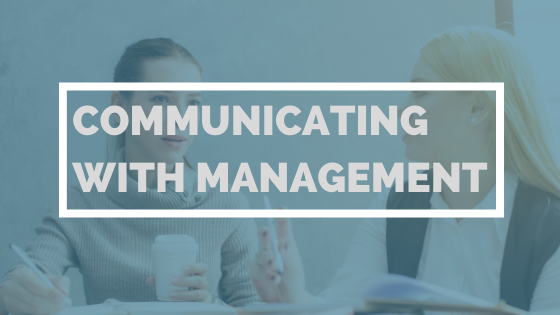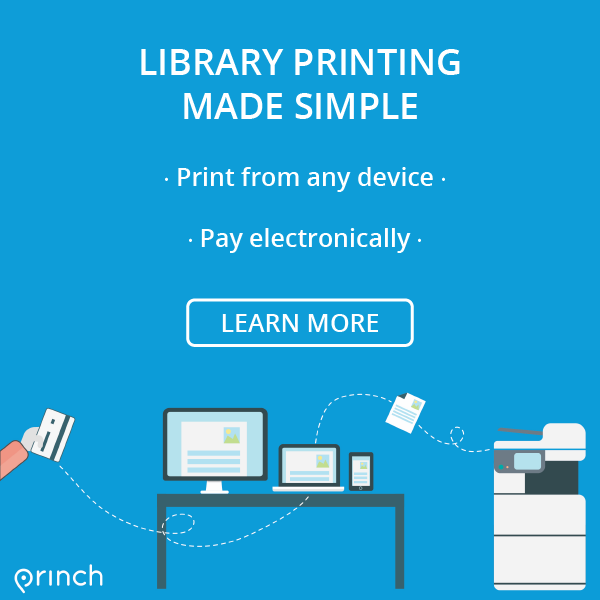Communication and Libraries
Communication is an extremely important skill to develop in life. We have noticed some questions and comments, from librarians and library staff about communicating between different levels or departments within the library. So today we will discuss communication “tips” between library staff, library management.
The development of effective communication skills leads to stronger social relationships, in both working-life and personal-life. While this is not new information for most, some team-members can struggle with the interaction between library staff and library management. Therefore, this specific dynamic is something worth discussing.
On occasion, there can be a disconnect between library staff and library management or the board. This can lead to decisions being made regarding important aspects of the team’s day-to-day or the library visitors’ experience that may not be the most optimal decision. Circumstances like these can be avoided by having clear and effective communication.
It is important that both library staff and management can effectively converse about the goals and messages that both respected sides are trying to portray to each other.
In this post we will discuss how to communicate effectively with management by proposing a suggested structure which can be used as a guideline to ensure the main points are well-presented in any topic of conversation.
Do you want to shape the future of services and spaces in North Kensington Library with library staff and local residents? Then come to the Library Users’ Forum Sat 18 January, 3pm to 4pm. All are welcome to attend, just pop in. We’d love to hear from you. pic.twitter.com/lZfHh8XwtR
— RBKC Libraries (@RBKClibraries) December 27, 2019
Book a time
This step is important to ensure the meeting gets off on the “right foot.”
Effective communication requires both parties to fully participate. This starts by mentioning a brief overview of what you plan to discuss in order to agree on a convenient time for each side to be available.
Perhaps a member of staff would like to discuss the need for a new library club or program, due to new information the library has obtained. The staff member can request a meeting with the manager at a time that works for both parties, with an overview stating the proposed club or program and the amount of time required for that discussion.
Structured and Prepared
After booking the meeting with your library manager, preparation should begin.
The meeting should not be a brainstorming session or a “what do you think about…?” kind of meeting unless clearly stated beforehand. If a staff member would like to pitch a suggestion, idea or alteration that could benefit the staff, visitors or library in general it is important the message is clear.
The talking points should be purposefully organized for the meeting. Start by introducing the concept before diving into any reasoning or statistical data that may be available.
For example, if a librarian would like to suggest cultivating an Internet of things (IoT) technology to their boss, which could increase the number of books borrowed, it is important the talking points are organized, to ensure the discussion stays relevant.
Suggested outline:
-Overview of the meeting
-Main point to discuss
-Reasons, research or statistics to support your point
-Potential resources needed
-Barriers
-Questions and feedback
Again, this is a simple suggestion and the structure will vary depending on your library and the meeting you are having. However, with a structured outline, the point is clear. An organized and easy to follow plan will ensure the conversation is more efficient and effective than otherwise.
There are also examples where the meeting may not be relevant to adding or eliminating library services or resources but perhaps is just focused on the process of staff meetings or how library management communicates with library staff in general. A similar structured meeting approach here would be beneficial. This will help highlight the focus of the meeting and hopefully facilitate the desired results for both parties. A well prepared and structured meeting can also help reduce unnecessary emotion in more stressful conversations.
Like all skills, this can take time and practice to develop so there are tools available designed to give you helpful information or guidelines for your meeting.
Another great example is our Princh business case, where we make it extremely easy to convince your boss to get Princh. You can click here to read how choosing Princh as your library’s printing solution is the best decision to make. We provide information in text and PowerPoint format, both of which are available for you to use in your meeting.
Read why #Princh is the preferred printing solution of #libraries! Click below to discover why we are the #perfect #printing solution for your #library! 👇 😎https://t.co/EUSmZqRFss pic.twitter.com/vY9LFWG9dv
— Princh (@PrinchApp) January 8, 2020
Understanding Outcomes
An important message to point out here, is that no matter the outcome of the meeting, both administrator and staff should feel proud and involved in the development of effective communication. These efficient discussions will lead to better services offered, improved patron experiences, workplace cohesion and many more positive benefits.
Secondly, it is important for all parties in a meeting to listen to comprehend. There will be factors and variables for both sides that may not have been known, or fully understood before.
For example, there might be a project the staff believe would help increase foot traffic to a specific section in the library but would require a budget of $2,000. It is important to know that management may have already allocated that funding in another area of the library. Understanding that all parties have untold variables, priorities and data to work with, will make for better communication. This also provides an opportunity for forward-planning and both parties can arrange for another conversation on the topic when funding becomes available again.
Unknown Variables
One important item to keep in mind anytime communication is being discussed is that all people are different. This means, there are different personalities, emotional intelligence levels, introverts, extroverts and all these variables will make a difference in effectively communicating with others. It may be difficult to know these variables, but it is important to respect this information if made aware. For example, if a softer-spoken individual does not tend to speak up in a group meeting this may be due to the atmosphere and this individual may share more information and input in a smaller group setting.
Remember that some individuals feel more comfortable speaking up in meetings or larger groups and others struggle to have a one on one conversation. However, these variables do not determine if that individual is hard working or engaged it just means communicating with them will most likely be in a different style. Do not forget that for some individuals just booking a meeting for a talk is a huge step and for others it is not. Be aware of the efforts people make to improve communication.
How Often Do You Ask Questions About Listening?
To learn how good a listener you are, design some questions about listening and ask the people you are #communicating with on a regular basis for feedback.https://t.co/aVS4hS1jQm #management #leadership via @susanmazza pic.twitter.com/zjYpXbf0Ww
— Chou Hallegra (@GHConsultingLLC) January 9, 2020
Try it out
The next step is to try and implement this information in a way that works with your internal procedures and library working-culture. Again, this is a guide to help, but of course variations and alterations should be expected in order to improve communication at each location. However, the important thing is to make sure communicating is open and easy, and that there is structure in place for library staff and management alike.
Recent posts
Green Libraries: How Sustainable Design is Shaping the Future of Public Libraries
In this week's Princh Library Blog post, recurring guest writer Sam L. Bowman discusses an ever so important topic: sustainable design and [...]
Librarians Supporting Digital Literacy in the Community
In this week's Princh Library Blog, Nina Grant covers why digital literacy is important, the variety of ways in which librarians are supporting [...]





Leave A Comment